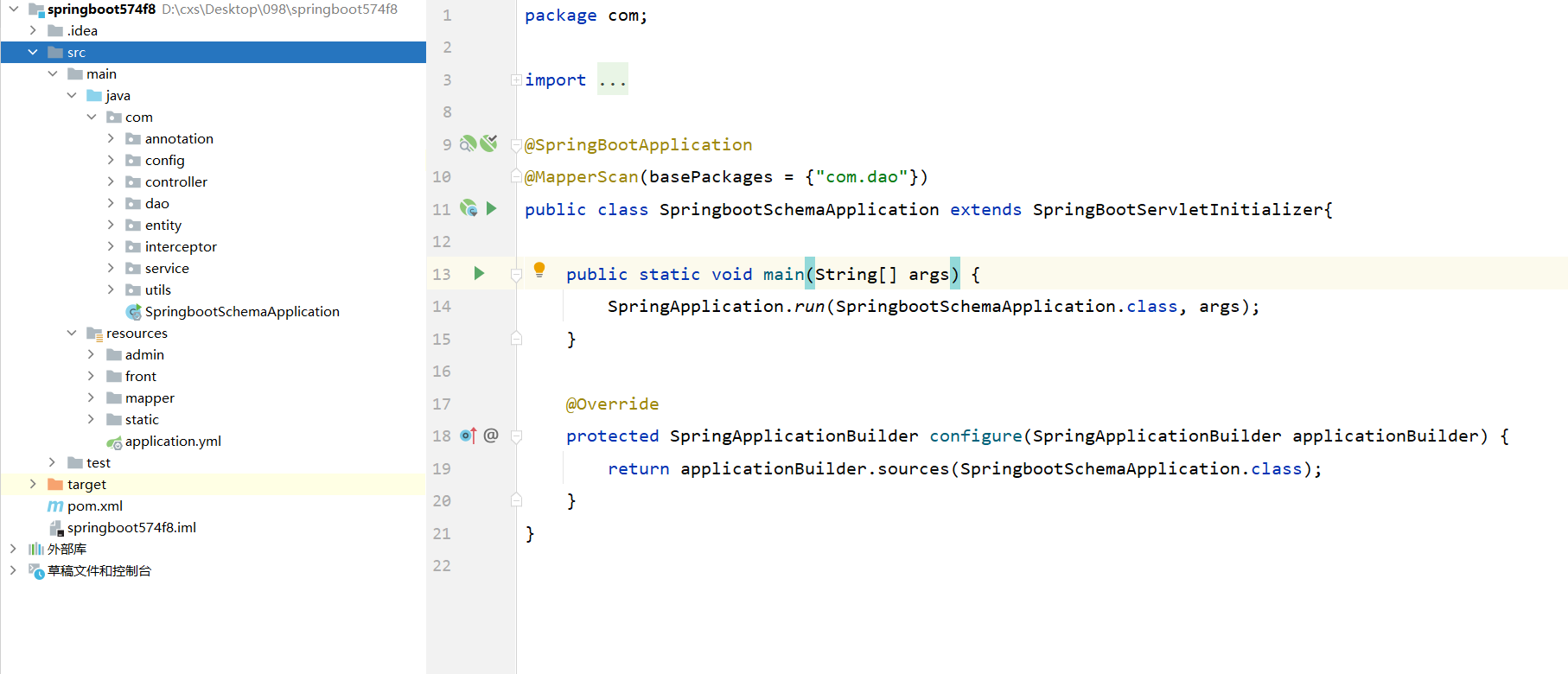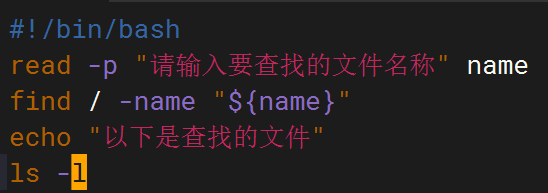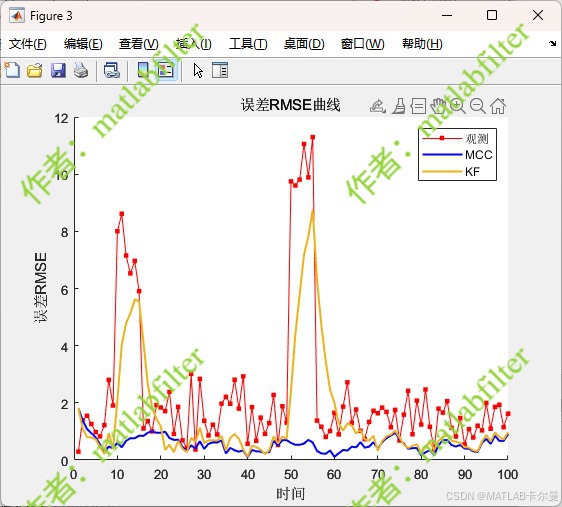FFmpeg 4.3 音视频-多路H265监控录放C++开发八,使用SDLVSQT显示yuv文件 ,使用ffmpeg的AVFrame
一. AVFrame 核心回顾,uint8_t *data[AV_NUM_DATA_POINTERS] 和 int linesize[AV_NUM_DATA_POINTERS]
AVFrame 存储的是解码后的数据,(包括音频和视频)例如:yuv数据,或者pcm数据,参考AVFrame结构体的第一句话。
其核心数据为:
AV_NUM_DATA_POINTERS = 8;
uint8_t *data[AV_NUM_DATA_POINTERS];
int linesize[AV_NUM_DATA_POINTERS];
uint8_t *data[AV_NUM_DATA_POINTERS];
data -->xxxxxxxxxxxxxxxxxxxxxxxxxxxxxxxxxxxxxxxxxxxxx
^ ^ ^
| | |
data[0] data[1] data[2]
比如说,当pix_fmt=AV_PIX_FMT_YUV420P时,data中的数据是按照YUV的格式存储的,也就是:
data -->YYYYYYYYYYYYYYYYYYYYYYYYUUUUUUUUUUUVVVVVVVVVVVV
^ ^ ^
| | |
data[0] data[1] data[2]
int linesize[AV_NUM_DATA_POINTERS];
linesize是指对应于每一行的大小,为什么需要这个变量,是因为在YUV格式和RGB格式时,每行的大小不一定等于图像的宽度。
linesize = width + padding size(16+16) for YUV
linesize = width*pixel_size for RGB
padding is needed during Motion Estimation and Motion Compensation for Optimizing MV serach and P/B frame reconstruction
for RGB only one channel is available
so RGB24 : data[0] = packet rgbrgbrgbrgb......
linesize[0] = width*3
data[1],data[2],data[3],linesize[1],linesize[2],linesize[2] have no any means for RGB
在二核心函数中 关于linesize[x]字节数的验证 代码,可以参考
/*** This structure describes decoded (raw) audio or video data.** AVFrame must be allocated using av_frame_alloc(). Note that this only* allocates the AVFrame itself, the buffers for the data must be managed* through other means (see below).* AVFrame must be freed with av_frame_free().** AVFrame is typically allocated once and then reused multiple times to hold* different data (e.g. a single AVFrame to hold frames received from a* decoder). In such a case, av_frame_unref() will free any references held by* the frame and reset it to its original clean state before it* is reused again.** The data described by an AVFrame is usually reference counted through the* AVBuffer API. The underlying buffer references are stored in AVFrame.buf /* AVFrame.extended_buf. An AVFrame is considered to be reference counted if at* least one reference is set, i.e. if AVFrame.buf[0] != NULL. In such a case,* every single data plane must be contained in one of the buffers in* AVFrame.buf or AVFrame.extended_buf.* There may be a single buffer for all the data, or one separate buffer for* each plane, or anything in between.** sizeof(AVFrame) is not a part of the public ABI, so new fields may be added* to the end with a minor bump.** Fields can be accessed through AVOptions, the name string used, matches the* C structure field name for fields accessible through AVOptions. The AVClass* for AVFrame can be obtained from avcodec_get_frame_class()*/typedef struct AVFrame {
#define AV_NUM_DATA_POINTERS 8/*** pointer to the picture/channel planes.* This might be different from the first allocated byte. For video,* it could even point to the end of the image data.** All pointers in data and extended_data must point into one of the* AVBufferRef in buf or extended_buf.** Some decoders access areas outside 0,0 - width,height, please* see avcodec_align_dimensions2(). Some filters and swscale can read* up to 16 bytes beyond the planes, if these filters are to be used,* then 16 extra bytes must be allocated.** NOTE: Pointers not needed by the format MUST be set to NULL.** @attention In case of video, the data[] pointers can point to the* end of image data in order to reverse line order, when used in* combination with negative values in the linesize[] array.*/uint8_t *data[AV_NUM_DATA_POINTERS];/*** For video, a positive or negative value, which is typically indicating* the size in bytes of each picture line, but it can also be:* - the negative byte size of lines for vertical flipping* (with data[n] pointing to the end of the data* - a positive or negative multiple of the byte size as for accessing* even and odd fields of a frame (possibly flipped)** For audio, only linesize[0] may be set. For planar audio, each channel* plane must be the same size.** For video the linesizes should be multiples of the CPUs alignment* preference, this is 16 or 32 for modern desktop CPUs.* Some code requires such alignment other code can be slower without* correct alignment, for yet other it makes no difference.** @note The linesize may be larger than the size of usable data -- there* may be extra padding present for performance reasons.** @attention In case of video, line size values can be negative to achieve* a vertically inverted iteration over image lines.*/int linesize[AV_NUM_DATA_POINTERS];/*** pointers to the data planes/channels.** For video, this should simply point to data[].** For planar audio, each channel has a separate data pointer, and* linesize[0] contains the size of each channel buffer.* For packed audio, there is just one data pointer, and linesize[0]* contains the total size of the buffer for all channels.** Note: Both data and extended_data should always be set in a valid frame,* but for planar audio with more channels that can fit in data,* extended_data must be used in order to access all channels.*/uint8_t **extended_data;/*** @name Video dimensions* Video frames only. The coded dimensions (in pixels) of the video frame,* i.e. the size of the rectangle that contains some well-defined values.** @note The part of the frame intended for display/presentation is further* restricted by the @ref cropping "Cropping rectangle".* @{*/int width, height;/*** @}*//*** number of audio samples (per channel) described by this frame*/int nb_samples;/*** format of the frame, -1 if unknown or unset* Values correspond to enum AVPixelFormat for video frames,* enum AVSampleFormat for audio)*/int format;/*** 1 -> keyframe, 0-> not*/int key_frame;/*** Picture type of the frame.*/enum AVPictureType pict_type;/*** Sample aspect ratio for the video frame, 0/1 if unknown/unspecified.*/AVRational sample_aspect_ratio;/*** Presentation timestamp in time_base units (time when frame should be shown to user).*/int64_t pts;/*** DTS copied from the AVPacket that triggered returning this frame. (if frame threading isn't used)* This is also the Presentation time of this AVFrame calculated from* only AVPacket.dts values without pts values.*/int64_t pkt_dts;/*** Time base for the timestamps in this frame.* In the future, this field may be set on frames output by decoders or* filters, but its value will be by default ignored on input to encoders* or filters.*/AVRational time_base;#if FF_API_FRAME_PICTURE_NUMBER/*** picture number in bitstream order*/attribute_deprecatedint coded_picture_number;/*** picture number in display order*/attribute_deprecatedint display_picture_number;
#endif/*** quality (between 1 (good) and FF_LAMBDA_MAX (bad))*/int quality;/*** for some private data of the user*/void *opaque;/*** When decoding, this signals how much the picture must be delayed.* extra_delay = repeat_pict / (2*fps)*/int repeat_pict;/*** The content of the picture is interlaced.*/int interlaced_frame;/*** If the content is interlaced, is top field displayed first.*/int top_field_first;/*** Tell user application that palette has changed from previous frame.*/int palette_has_changed;#if FF_API_REORDERED_OPAQUE/*** reordered opaque 64 bits (generally an integer or a double precision float* PTS but can be anything).* The user sets AVCodecContext.reordered_opaque to represent the input at* that time,* the decoder reorders values as needed and sets AVFrame.reordered_opaque* to exactly one of the values provided by the user through AVCodecContext.reordered_opaque** @deprecated Use AV_CODEC_FLAG_COPY_OPAQUE instead*/attribute_deprecatedint64_t reordered_opaque;
#endif/*** Sample rate of the audio data.*/int sample_rate;#if FF_API_OLD_CHANNEL_LAYOUT/*** Channel layout of the audio data.* @deprecated use ch_layout instead*/attribute_deprecateduint64_t channel_layout;
#endif/*** AVBuffer references backing the data for this frame. All the pointers in* data and extended_data must point inside one of the buffers in buf or* extended_buf. This array must be filled contiguously -- if buf[i] is* non-NULL then buf[j] must also be non-NULL for all j < i.** There may be at most one AVBuffer per data plane, so for video this array* always contains all the references. For planar audio with more than* AV_NUM_DATA_POINTERS channels, there may be more buffers than can fit in* this array. Then the extra AVBufferRef pointers are stored in the* extended_buf array.*/AVBufferRef *buf[AV_NUM_DATA_POINTERS];/*** For planar audio which requires more than AV_NUM_DATA_POINTERS* AVBufferRef pointers, this array will hold all the references which* cannot fit into AVFrame.buf.** Note that this is different from AVFrame.extended_data, which always* contains all the pointers. This array only contains the extra pointers,* which cannot fit into AVFrame.buf.** This array is always allocated using av_malloc() by whoever constructs* the frame. It is freed in av_frame_unref().*/AVBufferRef **extended_buf;/*** Number of elements in extended_buf.*/int nb_extended_buf;AVFrameSideData **side_data;int nb_side_data;/*** @defgroup lavu_frame_flags AV_FRAME_FLAGS* @ingroup lavu_frame* Flags describing additional frame properties.** @{*//*** The frame data may be corrupted, e.g. due to decoding errors.*/
#define AV_FRAME_FLAG_CORRUPT (1 << 0)
/*** A flag to mark the frames which need to be decoded, but shouldn't be output.*/
#define AV_FRAME_FLAG_DISCARD (1 << 2)
/*** @}*//*** Frame flags, a combination of @ref lavu_frame_flags*/int flags;/*** MPEG vs JPEG YUV range.* - encoding: Set by user* - decoding: Set by libavcodec*/enum AVColorRange color_range;enum AVColorPrimaries color_primaries;enum AVColorTransferCharacteristic color_trc;/*** YUV colorspace type.* - encoding: Set by user* - decoding: Set by libavcodec*/enum AVColorSpace colorspace;enum AVChromaLocation chroma_location;/*** frame timestamp estimated using various heuristics, in stream time base* - encoding: unused* - decoding: set by libavcodec, read by user.*/int64_t best_effort_timestamp;/*** reordered pos from the last AVPacket that has been input into the decoder* - encoding: unused* - decoding: Read by user.*/int64_t pkt_pos;#if FF_API_PKT_DURATION/*** duration of the corresponding packet, expressed in* AVStream->time_base units, 0 if unknown.* - encoding: unused* - decoding: Read by user.** @deprecated use duration instead*/attribute_deprecatedint64_t pkt_duration;
#endif/*** metadata.* - encoding: Set by user.* - decoding: Set by libavcodec.*/AVDictionary *metadata;/*** decode error flags of the frame, set to a combination of* FF_DECODE_ERROR_xxx flags if the decoder produced a frame, but there* were errors during the decoding.* - encoding: unused* - decoding: set by libavcodec, read by user.*/int decode_error_flags;
#define FF_DECODE_ERROR_INVALID_BITSTREAM 1
#define FF_DECODE_ERROR_MISSING_REFERENCE 2
#define FF_DECODE_ERROR_CONCEALMENT_ACTIVE 4
#define FF_DECODE_ERROR_DECODE_SLICES 8#if FF_API_OLD_CHANNEL_LAYOUT/*** number of audio channels, only used for audio.* - encoding: unused* - decoding: Read by user.* @deprecated use ch_layout instead*/attribute_deprecatedint channels;
#endif/*** size of the corresponding packet containing the compressed* frame.* It is set to a negative value if unknown.* - encoding: unused* - decoding: set by libavcodec, read by user.*/int pkt_size;/*** For hwaccel-format frames, this should be a reference to the* AVHWFramesContext describing the frame.*/AVBufferRef *hw_frames_ctx;/*** AVBufferRef for free use by the API user. FFmpeg will never check the* contents of the buffer ref. FFmpeg calls av_buffer_unref() on it when* the frame is unreferenced. av_frame_copy_props() calls create a new* reference with av_buffer_ref() for the target frame's opaque_ref field.** This is unrelated to the opaque field, although it serves a similar* purpose.*/AVBufferRef *opaque_ref;/*** @anchor cropping* @name Cropping* Video frames only. The number of pixels to discard from the the* top/bottom/left/right border of the frame to obtain the sub-rectangle of* the frame intended for presentation.* @{*/size_t crop_top;size_t crop_bottom;size_t crop_left;size_t crop_right;/*** @}*//*** AVBufferRef for internal use by a single libav* library.* Must not be used to transfer data between libraries.* Has to be NULL when ownership of the frame leaves the respective library.** Code outside the FFmpeg libs should never check or change the contents of the buffer ref.** FFmpeg calls av_buffer_unref() on it when the frame is unreferenced.* av_frame_copy_props() calls create a new reference with av_buffer_ref()* for the target frame's private_ref field.*/AVBufferRef *private_ref;/*** Channel layout of the audio data.*/AVChannelLayout ch_layout;/*** Duration of the frame, in the same units as pts. 0 if unknown.*/int64_t duration;
} AVFrame;二 核心函数 av_frame_alloc(),av_frame_get_buffer
AVFrame* avframe1 = av_frame_alloc();
从实现来看,av_frame_alloc 函数只是 给 avframe1分配了空间,但是内部的值都没有,也就是说avframe内部需要空间的都没有分配。

int av_frame_get_buffer(AVFrame *frame, int align);
给传递进来的 frame 的内部元素分配空间,
第一个参数:给那个frame分配空间
第二个参数:分配空间的对齐是按照 align 进行,如果填充的是0,会根据当前CPU给一个默认值,测试在32位 windows上,这个值就是32. 一般都会填写0,使用默认值
/*** Allocate new buffer(s) for audio or video data.** The following fields must be set on frame before calling this function:* - format (pixel format for video, sample format for audio)* - width and height for video* - nb_samples and ch_layout for audio** This function will fill AVFrame.data and AVFrame.buf arrays and, if* necessary, allocate and fill AVFrame.extended_data and AVFrame.extended_buf.* For planar formats, one buffer will be allocated for each plane.** @warning: if frame already has been allocated, calling this function will* leak memory. In addition, undefined behavior can occur in certain* cases.** @param frame frame in which to store the new buffers.* @param align Required buffer size alignment. If equal to 0, alignment will be* chosen automatically for the current CPU. It is highly* recommended to pass 0 here unless you know what you are doing.** @return 0 on success, a negative AVERROR on error.*/
int av_frame_get_buffer(AVFrame *frame, int align);内部实现:
可以看到如果是video,则会先判断 width 和 height 是否 > 0
也就是说,我们在调用这个函数之前,如果是for video,需要保证avframe 的 width 和height 的属性有被设置过。
int av_frame_get_buffer(AVFrame *frame, int align)
{if (frame->format < 0)return AVERROR(EINVAL);FF_DISABLE_DEPRECATION_WARNINGSif (frame->width > 0 && frame->height > 0)return get_video_buffer(frame, align);else if (frame->nb_samples > 0 &&(av_channel_layout_check(&frame->ch_layout)
#if FF_API_OLD_CHANNEL_LAYOUT|| frame->channel_layout || frame->channels > 0
#endif))return get_audio_buffer(frame, align);
FF_ENABLE_DEPRECATION_WARNINGSreturn AVERROR(EINVAL);
}那么如果我们不设置会有什么问题呢?
试一试

设置一下 width 和height 再来看一下
还是有问题:Invalid argument
void testAVframe() {cout << avcodec_configuration() << endl;AVFrame* avframe1 = av_frame_alloc();cout << "debug1...." << endl;avframe1->width = 300;avframe1->height = 600;int ret = 0;ret = av_frame_get_buffer(avframe1, 0);if (ret < 0 ) {//如果方法失败,会返回一个 负数,可以通过 av_strerror函数打印这个具体的信息char buf[1024] = { 0 };av_strerror(ret, buf, sizeof(buf));cout << buf << endl;}cout << "debug2......" << endl;
}那么应该再来看源码中的具体方法:get_video_buffer(frame, align);
源码在 frame.c中,我们看到 在 av_pix_fmt_desc_get(frame->format)中 返回了一个 desc,如果这个desc 为null,也会返回error。那么也就是说,这个frame->format 应该是有必要设置的,如下:
static int get_video_buffer(AVFrame *frame, int align)
{const AVPixFmtDescriptor *desc = av_pix_fmt_desc_get(frame->format);int ret, i, padded_height, total_size;int plane_padding = FFMAX(16 + 16/*STRIDE_ALIGN*/, align);ptrdiff_t linesizes[4];size_t sizes[4];if (!desc)return AVERROR(EINVAL);为了验证这个问题,我们可以设置一下frame 中的 format 测试一下。发现是可以的。我们这时候再将 avframe1中的 关键数据 打印 看一下。
void testAVframe() {cout << avcodec_configuration() << endl;AVFrame* avframe1 = av_frame_alloc();cout << "debug1...." << endl;avframe1->width = 300;avframe1->height = 600;//设置 foramt为 AV_PIX_FMT_YUV420P,再次测试avframe1->format = AV_PIX_FMT_YUV420P;int ret = 0;ret = av_frame_get_buffer(avframe1, 0);if (ret < 0 ) {//如果方法失败,会返回一个 负数,可以通过 av_strerror函数打印这个具体的信息char buf[1024] = { 0 };av_strerror(ret, buf, sizeof(buf));cout << buf << endl;}cout << "debug2......" << endl;
}关于linesize[x]字节数的验证
void testAVframe() {cout << avcodec_configuration() << endl;AVFrame* avframe1 = av_frame_alloc();cout << "debug1...." << endl;//只设置 宽和高 ,av_frame_get_buffer 函数还是会报错误。avframe1->width = 641 ;avframe1->height = 111;//设置 foramt为 AV_PIX_FMT_YUV420P,再次测试 就成功了avframe1->format = AV_PIX_FMT_RGB24;int ret = 0;ret = av_frame_get_buffer(avframe1, 0);if (ret < 0 ) {//如果方法失败,会返回一个 负数,可以通过 av_strerror函数打印这个具体的信息char buf[1024] = { 0 };av_strerror(ret, buf, sizeof(buf));cout << buf << endl;}cout << "debug2......" << endl;// avframe1 通过 av_frame_get_buffer 函数后,打印相关数据cout<< " 640 *111 yuv420p case , avframe1->linesize[0] = " << avframe1->linesize[0] << endl; ///640cout << " 640 *111 yuv420p case , avframe1->linesize[1] = " << avframe1->linesize[1] << endl; ///320cout << " 640 *111 yuv420p case , avframe1->linesize[2] = " << avframe1->linesize[2] << endl; ///320cout << " 641 *111 yuv420p case , avframe1->linesize[0] = " << avframe1->linesize[0] << endl;///672 由于字节对齐,多了一个32字节出来cout << " 641 *111 yuv420p case , avframe1->linesize[1] = " << avframe1->linesize[1] << endl;///352 由于字节对齐,多了一个32字节出来cout << " 641 *111 yuv420p case , avframe1->linesize[2] = " << avframe1->linesize[2] << endl;///352 由于字节对齐,多了一个32字节出来cout << " 640 *111 AV_PIX_FMT_RGB24 case , avframe1->linesize[0] = " << avframe1->linesize[0] << endl; //1920,这是因为640/32 是可以除尽的,因此640 * (RGB占用3个字节) = 1920cout << " 640 *111 AV_PIX_FMT_RGB24 case , avframe1->linesize[1] = " << avframe1->linesize[1] << endl; //0cout << " 640 *111 AV_PIX_FMT_RGB24 case , avframe1->linesize[2] = " << avframe1->linesize[2] << endl;//0cout << " 641 *111 AV_PIX_FMT_RGB24 case , avframe1->linesize[0] = " << avframe1->linesize[0] << endl; //2016, 这是因为641/32 是不能除尽的,因此 对于 多出来的这1个像素,本来占用1*3 = 3个字节就好,但是由于需要字节对齐,实际上给这1个像素要分配32个单位,因此实际分配位 32 *3 = 96字节 96+1920 = 2016个字节cout << " 641 *111 AV_PIX_FMT_RGB24 case , avframe1->linesize[1] = " << avframe1->linesize[1] << endl;cout << " 641 *111 AV_PIX_FMT_RGB24 case , avframe1->linesize[2] = " << avframe1->linesize[2] << endl;}三。核心函数 av_frame_ref() 和 av_frame_unref(AVFrame *frame); av_frame_free(AVFrame **frame); av_buffer_get_ref_count(const AVBufferRef *buf);
int av_frame_ref(AVFrame *dst, const AVFrame *src);
引用计数 +1 和 引用计数 -1
void testAVframe1() {int ret = 0;AVFrame* avframe1 = av_frame_alloc();avframe1->width = 641;avframe1->height = 111;avframe1->format = AV_PIX_FMT_YUV420P;ret = av_frame_get_buffer(avframe1, 0);if (ret < 0) {//如果方法失败,会返回一个 负数,可以通过 av_strerror函数打印这个具体的信息char buf[1024] = { 0 };av_strerror(ret, buf, sizeof(buf));cout << buf << endl;}//这里有个疑问,这时 avframe没有放置具体的数据,为什么这个buf[0] 有值?if (avframe1->buf[0]){//av_buffer_get_ref_count函数打印 引用计数 为1cout << "frame1 ref count = " <<av_buffer_get_ref_count(avframe1->buf[0]); // 线程安全cout << endl;}AVFrame* avframe2 = av_frame_alloc();ret = av_frame_ref(avframe2, avframe1);if (ret <0 ) {//如果方法失败,会返回一个 负数,可以通过 av_strerror函数打印这个具体的信息char buf[1024] = { 0 };av_strerror(ret, buf, sizeof(buf));cout << buf << endl;}if (avframe1->buf[0]){//av_buffer_get_ref_count函数打印 引用计数2cout << "frame1 ref count = " <<av_buffer_get_ref_count(avframe1->buf[0]); // 线程安全cout << endl;}if (avframe2->buf[0]){//av_buffer_get_ref_count函数打印 引用计数2cout << "frame2 ref count = " <<av_buffer_get_ref_count(avframe2->buf[0]); // 线程安全cout << endl;}cout << "debug2...." << endl;av_frame_unref(avframe2);if (avframe1->buf[0]){//av_buffer_get_ref_count函数打印 引用计数1cout << "frame111111 ref count = " <<av_buffer_get_ref_count(avframe1->buf[0]); // 线程安全cout << endl;}//到这里 只是通过 av_frame_unref(avframe2); 释放了avframe2的内部数据,但是avframe2还是存在的if (avframe2->buf[0]){//走不到这一行//av_buffer_get_ref_count函数打印 引用计数cout << "frame222222 ref count = " <<av_buffer_get_ref_count(avframe2->buf[0]); // 线程安全cout << endl;}av_frame_free(&avframe2);cout << "debug3...." << endl;av_frame_free(&avframe1);
}相关文章:

FFmpeg 4.3 音视频-多路H265监控录放C++开发八,使用SDLVSQT显示yuv文件 ,使用ffmpeg的AVFrame
一. AVFrame 核心回顾,uint8_t *data[AV_NUM_DATA_POINTERS] 和 int linesize[AV_NUM_DATA_POINTERS] AVFrame 存储的是解码后的数据,(包括音频和视频)例如:yuv数据,或者pcm数据,参考AVFrame结…...

HTML 标签属性——<a>、<img>、<form>、<input>、<table> 标签属性详解
文章目录 1. `<a>`元素属性hreftargetname2. `<img>`元素属性srcaltwidth 和 height3. `<form>`元素属性actionmethodenctype4. `<input>`元素属性typevaluenamereadonly5. `<table>`元素属性cellpaddingcellspacing小结HTML元素除了可以使用全局…...

css简写属性
一些属性,如 font、background、padding、border 和 margin 等属性称为简写属性。它们允许在一行中设置多个属性值,从而节省时间并使代码更整洁。 /* 在像 padding 和 margin 这样的 4 值简写语法中,数值的应用顺序是上、右、下、左ÿ…...
--零散知识点(2))
力扣刷题(sql)--零散知识点(2)
1.自定义分组后的分类统计问题(某组内无数据却仍要展示) 例题1: 查询每个工资类别的银行账户数量。 工资类别如下: "Low Salary":所有工资 严格低于 20000 美元。"Average Salary":…...

TCP是怎样工作的网络拥塞控制理论和算法部分记录
参考资料 https://github.com/ituring/tcp-book 流量控制、窗口控制和拥塞控制的关系 流量控制、窗口控制和拥塞控制的关系如图所示 窗口控制是上层的概念,核心思路是基于滑动窗口技术传输数据。而确定发送窗口大小的方法有流量控制和拥塞控制两种 流量控制&…...

CSRF初级靶场
靶场 针对DVWA么有防御 源码: <?phpif( isset( $_GET[ Change ] ) ) {// Get input$pass_new $_GET[ password_new ];$pass_conf $_GET[ password_conf ];// Do the passwords match?if( $pass_new $pass_conf ) {// They do!$pass_new ((isset($GLOBA…...

CSP/信奥赛C++刷题训练:经典差分例题(2):洛谷P9904 :Mieszanie kolorów
CSP/信奥赛C++刷题训练:经典差分例题(2):洛谷P9094 :Mieszanie kolorw 题目描述 题目译自 PA 2020 Runda 1 Mieszanie kolorw Byteasar 正准备给栅栏涂漆。他已经准备了 n n n 罐白色油漆,他把这些油漆排列成一排,从 1 1 1 到 n n n 编号。他想用这些油漆,但他不想…...

Java | Leetcode Java题解之第525题连续数组
题目: 题解: class Solution {public int findMaxLength(int[] nums) {int maxLength 0;Map<Integer, Integer> map new HashMap<Integer, Integer>();int counter 0;map.put(counter, -1);int n nums.length;for (int i 0; i < n;…...

YOLOv8改进 - 注意力篇 - 引入iRMB注意力机制
#YOLO# #目标检测# #计算机视觉# 一、本文介绍 作为入门性篇章,这里介绍了iRMB注意力在YOLOv8中的使用。包含iRMB原理分析,iRMB的代码、iRMB的使用方法、以及添加以后的yaml文件及运行记录。 二、iRMB原理分析 iRMB官方论文地址:文章 iR…...

项目学习总结
文章目录 项目学习总结项目中的vw适配vw使用 封装axios实例axios常见请求配置axios响应结构axios拦截器配置Vue Router全局前置守卫 项目学习总结 在智慧商城项目中的学习总结。 项目中的vw适配 vw 是一种长度单位,代表视口宽度的百分比。1vw 等于视口宽度的1%。…...

用于低成本接收机的LoRa SF11 500KHz波形检测解调算法
前一篇里,获取了LORAwan的物理层波形,并通过Octave查看了它的瞬时频率。LoRa是私有协议,网上已经有了很不错的开源的实现,如: S2_LoRa通信实验 LoRaPhy 以及GNU-Radio的Lora模块、LimeSDR的Lora实现。当我试图修改上…...

WEB防护
WEB防护的范围比较广,主要是指针对web安全而做的各种防御措施, 包含应对xss、csrf等漏洞攻击的应对方式。 Web防护是通过执行一系列针对HTTP/HTTPS的安全策略来专门为Web应用提供保护的一款产品, 主要用于防御针对网络应用层的攻击࿰…...

使用Jest进行JavaScript单元测试
💓 博客主页:瑕疵的CSDN主页 📝 Gitee主页:瑕疵的gitee主页 ⏩ 文章专栏:《热点资讯》 使用Jest进行JavaScript单元测试 引言 Jest 简介 安装 Jest 创建基本配置 编写测试用例 运行测试 快照测试 模拟函数 代码覆盖率…...

网络安全法详细介绍——爬虫教程
目录 [TOC](目录)一、网络安全法详细介绍1. 网络安全法的主要条款与作用2. 网络安全法与爬虫的关系3. 合法使用爬虫的指南 二、爬虫的详细教程1. 准备环境与安装工具2. 使用requests库发送请求3. 解析HTML内容4. 使用robots.txt规范爬虫行为5. 设置请求间隔6. 数据清洗与存储 三…...

PCB什么情况该敷铜,什么情况不该敷铜!
更多电路设计,PCB设计分享及分析,可关注本人微信公众号“核桃设计分享”! 这个是老生常谈的问题了,可私底下还是有很多小伙伴问核桃这个问题,所以今天就好好聊一聊这个话题。 先说结论:PCB不是什么时候都可…...

标准化的企业级信息管理系统信息中心必备PHP低代码平台
谈谈企业级信息管理系统! 1. 标准化的企业级信息管理系统是信息中心必备,这才是集团该用的信息化管理系统。其有个很大特点是便于开发,能服务于企业技术中心,为其提供强大工具能力,在工具能力架构下通过流程、表单、报…...

Rust 力扣 - 1984. 学生分数的最小差值
文章目录 题目描述题解思路题解代码题目链接 题目描述 题解思路 原数组 nums 排序,遍历nums中下标为[0, nums.len() - k]的学生分数 假设当前遍历的下标为i则,以 i 下标为最小值的学生分数的最小差值为nums[i k - 1] - nums[i] 取最小差值的最小值即…...

【098】基于SpringBoot+Vue实现的垃圾分类系统
系统介绍 视频演示 基于SpringBootVue实现的垃圾分类系统 基于SpringBootVue实现的垃圾分类系统设计了三种角色、分别是管理员、垃圾分类管理员、用户,实现了个人中心、用户管理、垃圾分类管理员管理、垃圾分类管理、垃圾类型管理、垃圾图谱管理、系统管理等功能 …...

STM32CUBEIDE FreeRTOS操作教程(八):queues多队列
STM32CUBEIDE FreeRTOS操作教程(八):queues多队列 STM32CUBE开发环境集成了STM32 HAL库进行FreeRTOS配置和开发的组件,不需要用户自己进行FreeRTOS的移植。这里介绍最简化的用户操作类应用教程。以STM32F401RCT6开发板为例&#…...

SIGNAL TAP使用记录
一、首先编译工程 二、打开signal tap,并设置抓取时钟以及采样深度 二、点击set up,然后双击空白处,会弹出右侧窗口,点击filter选择pre_synthesis,这里选择综合前的信号观测,要确保左侧窗口内的信号是黑色…...

shell脚本--常见案例
1、自动备份文件或目录 2、批量重命名文件 3、查找并删除指定名称的文件: 4、批量删除文件 5、查找并替换文件内容 6、批量创建文件 7、创建文件夹并移动文件 8、在文件夹中查找文件...

前端导出带有合并单元格的列表
// 导出async function exportExcel(fileName "共识调整.xlsx") {// 所有数据const exportData await getAllMainData();// 表头内容let fitstTitleList [];const secondTitleList [];allColumns.value.forEach(column > {if (!column.children) {fitstTitleL…...

服务器硬防的应用场景都有哪些?
服务器硬防是指一种通过硬件设备层面的安全措施来防御服务器系统受到网络攻击的方式,避免服务器受到各种恶意攻击和网络威胁,那么,服务器硬防通常都会应用在哪些场景当中呢? 硬防服务器中一般会配备入侵检测系统和预防系统&#x…...

TRS收益互换:跨境资本流动的金融创新工具与系统化解决方案
一、TRS收益互换的本质与业务逻辑 (一)概念解析 TRS(Total Return Swap)收益互换是一种金融衍生工具,指交易双方约定在未来一定期限内,基于特定资产或指数的表现进行现金流交换的协议。其核心特征包括&am…...

vue3 定时器-定义全局方法 vue+ts
1.创建ts文件 路径:src/utils/timer.ts 完整代码: import { onUnmounted } from vuetype TimerCallback (...args: any[]) > voidexport function useGlobalTimer() {const timers: Map<number, NodeJS.Timeout> new Map()// 创建定时器con…...
)
【服务器压力测试】本地PC电脑作为服务器运行时出现卡顿和资源紧张(Windows/Linux)
要让本地PC电脑作为服务器运行时出现卡顿和资源紧张的情况,可以通过以下几种方式模拟或触发: 1. 增加CPU负载 运行大量计算密集型任务,例如: 使用多线程循环执行复杂计算(如数学运算、加密解密等)。运行图…...

GitFlow 工作模式(详解)
今天再学项目的过程中遇到使用gitflow模式管理代码,因此进行学习并且发布关于gitflow的一些思考 Git与GitFlow模式 我们在写代码的时候通常会进行网上保存,无论是github还是gittee,都是一种基于git去保存代码的形式,这样保存代码…...

【MATLAB代码】基于最大相关熵准则(MCC)的三维鲁棒卡尔曼滤波算法(MCC-KF),附源代码|订阅专栏后可直接查看
文章所述的代码实现了基于最大相关熵准则(MCC)的三维鲁棒卡尔曼滤波算法(MCC-KF),针对传感器观测数据中存在的脉冲型异常噪声问题,通过非线性加权机制提升滤波器的抗干扰能力。代码通过对比传统KF与MCC-KF在含异常值场景下的表现,验证了后者在状态估计鲁棒性方面的显著优…...

MySQL 主从同步异常处理
阅读原文:https://www.xiaozaoshu.top/articles/mysql-m-s-update-pk MySQL 做双主,遇到的这个错误: Could not execute Update_rows event on table ... Error_code: 1032是 MySQL 主从复制时的经典错误之一,通常表示ÿ…...

k8s从入门到放弃之HPA控制器
k8s从入门到放弃之HPA控制器 Kubernetes中的Horizontal Pod Autoscaler (HPA)控制器是一种用于自动扩展部署、副本集或复制控制器中Pod数量的机制。它可以根据观察到的CPU利用率(或其他自定义指标)来调整这些对象的规模,从而帮助应用程序在负…...
